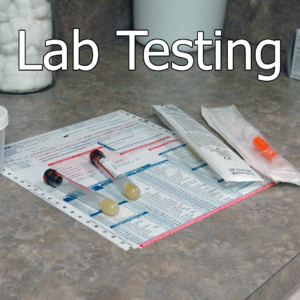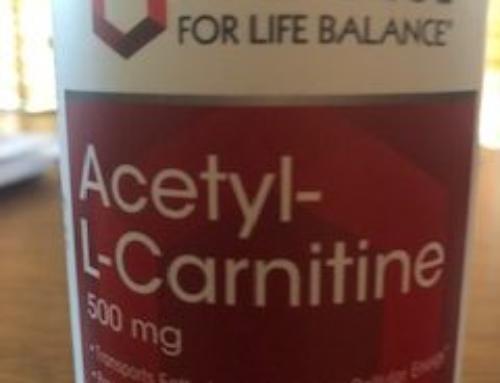If A Doctor Wanted to Place Me on a Medication, Here is What I Would Do First……
I thought I would share with you “what you should ask your doctor” and the “homework” that you should do as well before you add a new medication to your regimen. While it is easier to just fill the script and pop a pill, you may suffer from side effects and it may not be a medication that you even need.
I wanted to share this because I see more and more people on a “cocktail” of medications. Often a new medication added is just chasing a symptom caused by another medication, or people don’t realize the specific nutrients that are depleted by taking these medications and much more….so I am not saying you do or do not need a medication, what I am saying is make an educated decision….so that you make the best decision for your body!
If, during your office visit with your doctor, he or she wants to prescribe for you a medication such as a statin, proton pump inhibitor, BP medication, anti-depressant or any other long- term type drug, here is what I would ask and do first.
(and by the way, when the doctor makes these recommendations for you, he does this in an office visit that lasts on average 7-10 minutes.)
If you are already on a medication(s), it is still important to ask your doctor these questions so that you are informed!
What I would Ask My Doctor
Why? Is there something you see on my lab work? If so, please explain. If not based on lab work, what are you basing your medication decision on?
Many medication prescriptions are based on lab work, however mental health issues are often based on what you tell your doctor in a very short conversation. You may want to ask for more detailed lab work. For instance, if the doctor is prescribing a statin due to high total cholesterol, ask for a full lipid panel with the breakdown of your LDL. Also ask to test the thyroid (a full thyroid panel) and homocysteine and for MTHFR. A medication should not be based off one marker on lab work. We need to see a complete picture.
Thus for instance, your elevated cholesterol may be caused by subclinical hypothyroidism and that needs to be addressed. If you take a statin, you will never address the root cause, which in this case would be the thyroid.
The issue is, how do you know if your doctor is running the right tests and looking at the whole picture on lab work? This can be really confusing. I recommend bringing your lab work to someone who can review it with you and let you know what tests, if any, are still needed. I offer this service if interested.
Will the medication manage my symptoms, or will it offer a cure? As time goes by, is it typical to need a higher dose of this medication for it to be effective?
Often, the medication will manage a condition, such as blood pressure medication, a statin, a proton pump inhibitor or insulin, but it will not address the underlying root cause. Some people don’t care about addressing root causes and would rather “maintain their health” rather than having optimal health. The choice is yours and no one else’s.
How long do you want me on this medication? Life time? Weeks, months, years?
What I have found is that people are on these medications for years, sometimes 30 plus years by the time I see them. Their bodies are so depleted from long term use and no one is making them aware that some of their new issues are caused by the medication. Do your research and be fully aware of the long- term impact.
What are my other options?
There are always other options! If your doctor tells you there are no other options, I would say it is time to find a new doctor. Medication can be life saving and I am not talking about medications in a life saving emergency in the ER. I am talking about routine office visits and prescribing of medication in these checkups, not life and death situations.
Some people would rather take the medication than make changes such as diet and lifestyle modifications. And that is fine, that is why we have medications; for those who don’t want to take responsibility of their health. But if you are reading this, that is not you. You care about your health and want to be in control of your own health, as you should be.
If you want to avoid side effects and long-term consequences, you may want to commit to several months working with a health professional in making these changes and see what and if any results you get before you take the medication.
It is easier to try the alternative route with food, herbs and supplements first, rather than trying to fix the problem after being on a cocktail of medications for years.
Can you provide me with research and data that supports the use of this medication for what you are prescribing it for?
Your doctor may not be ready for this question and may have to get the front office staff to get information for you, but either way they should provide studies and hopefully it is not just information that comes directly from the drug company or sites such as webmd.com (but be prepared as it may).
In addition to this, many drugs are used “off label”. To use Gabapentin as an example, this drug is for seizures but is also used for nerve pain, for sleep and for depression.
Dig into the research on your own. Go past the medical and big pharma sites. Do multiple searches varying the words in the search.
In clinical studies, how long have the people been on this drug?
Your doctor may not have the answer to this or by this point may be getting annoyed by all your questions.
I have had doctors get mad at me because I don’t “just shut up and listen basically to their recommendation”. I am sorry, but when it comes to my health or that of my family, I think I deserve to have all the information. I have seen too many people suffer, not from the original illness but from the drug effects.
Also, to note, some of the drug side effects do not go away once you taper off the drug! Know the medication you are going to start on very well!
Read full studies not just the abstract. I know, it can be boring, but you want to know the data and also who funded the research. An abstract can be very deceptive when you don’t have all the information.
Many of these medications have not been looked at long term. For instance, many ADD medications have only been studied for up to 4 weeks! What child on ADD medication do you know that has taken it for only 4 weeks!
Proton Pump Inhibitors are recommended only for 12 weeks yet I have seen people on these drugs for years which means the doctor keeps filling the script even though he or she knows very well that these drugs should not be taken long term. If that’s the case, do we even know the consequences of long term use? We may not.
What are the side effects?
If your doctor is like ones I have seen, they will tell you some very minor and basic ones. I remember when I was refusing an SSRI medication for my son and the doctor said when he got annoyed with me “What, are you worried about a little dry mouth side effect?”.
No, I was worried about the increased risk of suicide in children who use these drugs! BIG difference! (and by the way, the doctor never mentioned the increase in suicide risk. I had to find that out on my own, so I have learned to do my own research and not trust doctors sadly)
Thus, do your own homework on this one, because you probably are not going to get the full answer from your doctor.
When you do your own search, go beyond the first few medical sites online. Go also to sites where people post their side effects and reactions to the drug you are looking at.
On top of that, doctors are not aware of some of the effects that medication can have which can cause a cascade effect. For instance, a medication can disrupt the gut microbiome and cause leaky gut. When this happens, it can set you up for inflammation, autoimmune conditions, leaky blood brain barrier (mental health issues become a concern) and food sensitivities to name a few issues. So you may end up with a new physical or mental health issue, of which your doctor will write you another prescription.
Can I just stop using this medication or is there a taper process?
What are the withdrawal symptoms like?
I think this is very important! I have seen clients who are on medications for 20 plus years and now they want to get off them and their doctor never told them that the taper process is very difficult.
Let’s use Gabapentin as an example again. This is a drug that is often used off label can be very challenging to taper off. And no, it’s not that you need the drug and need to go back on it. It is the withdrawal process and the effects the drug has had on your body.
Doctors tend to be very good at prescribing medication and having you come back for checkups and medication tweaks but they are not very good at getting you off these drugs or are unfamiliar with how to taper and the prep work that needs to be done before a taper.
Tapering should never be a quick process, especially if you have been on a drug for many years. Tapering can take a year or longer for some. My philosophy is to address the root causes, support the body and then after doing this for at least 6 months, then start the taper process.
During the taper, the protocol will change, with added herbs and supplements to support you in the withdrawal process. Doctors did not learn about going off meds, just getting you on them.
I am going to be adding in Drug Tapering Classes starting in June 2018 to help guide you in this process. I cannot tell you to go off your meds, but when you do plan to go off of them, after discussing it with your doctor, I can assist you to make the process more bearable.
Once you have the responses to the above questions from your doctor. You should still take time to think about it and do your own research.
What I would do once I have left the Doctor’s office
Do my own research! And lots of it. I would research side effects, long term effects, alternative options, look up other people’s experience on this drug, the taper/withdrawal process, what nutrients it depletes and what interacts with this drug.
Contact someone who specializes in my health issue using alternative means. Often, they will spend some time if able, to discuss with you their approach. You decide if you want to seek an alternative option. If so, I would reevaluate after 3 months working at the alternative option.
For instance, if it was based on lab work-get the correct lab work done at this time and see if you have made strides in the right direction. Or did you even need the medication in the first place? Again, using statin as the example, if on blood work the second time they looked at the thyroid and found you have hypothyroidism, well then, this can cause high cholesterol and the answer would not to be placed on a statin but to address the cause of the high cholesterol which would be support thyroid health.
I hope this helps you and guides you for your next appointment. You should never feel rushed or pressured into taking a drug. It is your body and you have the right to think about it and do some research and make an education decision about what is bests for you!
I would love to hear if you declined medication and what you did instead!







Leave A Comment
You must be logged in to post a comment.